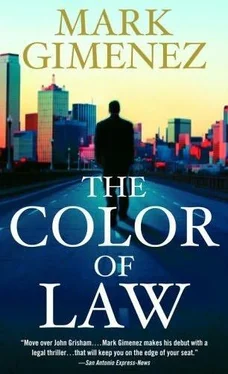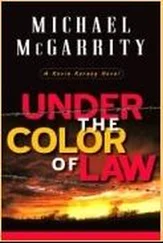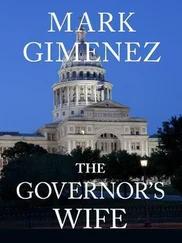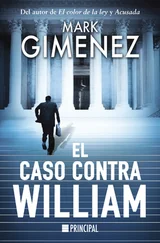Mark Gimenez - The Color of Law
Здесь есть возможность читать онлайн «Mark Gimenez - The Color of Law» весь текст электронной книги совершенно бесплатно (целиком полную версию без сокращений). В некоторых случаях можно слушать аудио, скачать через торрент в формате fb2 и присутствует краткое содержание. Жанр: Криминальный детектив, на английском языке. Описание произведения, (предисловие) а так же отзывы посетителей доступны на портале библиотеки ЛибКат.
- Название:The Color of Law
- Автор:
- Жанр:
- Год:неизвестен
- ISBN:нет данных
- Рейтинг книги:3 / 5. Голосов: 1
-
Избранное:Добавить в избранное
- Отзывы:
-
Ваша оценка:
- 60
- 1
- 2
- 3
- 4
- 5
The Color of Law: краткое содержание, описание и аннотация
Предлагаем к чтению аннотацию, описание, краткое содержание или предисловие (зависит от того, что написал сам автор книги «The Color of Law»). Если вы не нашли необходимую информацию о книге — напишите в комментариях, мы постараемся отыскать её.
The Color of Law — читать онлайн бесплатно полную книгу (весь текст) целиком
Ниже представлен текст книги, разбитый по страницам. Система сохранения места последней прочитанной страницы, позволяет с удобством читать онлайн бесплатно книгу «The Color of Law», без необходимости каждый раз заново искать на чём Вы остановились. Поставьте закладку, и сможете в любой момент перейти на страницу, на которой закончили чтение.
Интервал:
Закладка:
Dan Ford was wrong: it wasn’t just business; it was just bigotry. And A. Scott Fenney was wrong: his mother would not have been proud of her son.
Scott gave the members and their caddies one last glance-and noticed one of the caddies staring at him. The caddie’s face changed; he recognized Scott. He smiled and gave Scott a discrete thumbs-up. Scott thought he recognized the caddie but he couldn’t remember his name-he had never asked his caddies their names-but he returned the gesture, then ran on.
A few blocks later his thoughts were still on the club and the caddies and his good mother when he heard a high-pitched voice: “Scott! Scott!” He slowed, turned, and saw an arm waving out the window of a red Beemer: Shit, Penny Birnbaum!
“Scott! Wait!”
Penny was heading in the opposite direction down Lovers, so Scott cut through Curtis Park, two backyards, hit an alley, ran a few more blocks, and came out on Hillcrest Avenue. He turned south and ran along the western boundary of the SMU campus. He entered the campus at University Boulevard right in front of the law school.
He stopped.
Three years he had spent in that building, three years studying the law-torts, taxes, contracts, conflicts, procedure, property, and ethics, a subject he studied in school and quickly forgot in practice. The practice of law isn’t about ethics; it’s about money.
Scott began running again, past the sorority houses placed all in a row, conveniently, he had thought back then, so he wouldn’t have far to walk between girls. And he recalled all the pleasures he had experienced in those houses with those girls, and he found himself wondering, as he had never wondered before, if their lives had turned out well.
He ran along University Boulevard into the heart of the manicured campus, then turned south on Hilltop Lane, which became Ownby Drive and led him directly to the new Gerald Ford Stadium, named after the billionaire Dallas banker, not the former president. He found an unlocked gate, entered the stadium, walked to the nearest ramp, and emerged from the concrete underbelly onto the green grass.
He was alone on the field.
The best times of his life had played out in this small arena-120 yards long, 53^1 3 yards wide. And the worst times, too, he used to think. Glorious victories and crushing defeats. Moments of immeasurable joy and unspeakable sadness. He could still close his eyes and see the crowd. He could still hear them cheering and smell the freshly cut grass. He could still taste his blood. He could still feel football.
Scott climbed the steps to the spectator stands and abruptly did what he had done so often back then: he ran the stands. His arms pumping, his legs burning with pain, he ran all the way to the top. He turned and looked at the downtown skyline in the distance, the skyscrapers silhouetted against the blue sky. Dibrell Tower stood above them all, and on the sixty-second floor, Sid Greenberg was standing in Scott’s office. Sid couldn’t see Scott four miles away, but Scott shot him the finger anyway, just on principle.
Back in college, he had often run the stands at night just so he could sit at the top of the stadium and gaze at the lights of downtown, the Emerald City rising out of the endless Texas plains: Dibrell Tower outlined in blue argon lights; the lighted ball above Reunion Arena looking like a Christmas tree ornament; and Pegasus, the neon red flying horse above the old Magnolia Building. Like so many other young white men, Scott Fenney had been seduced by the lights, by dreams of getting rich in Big D. That’s what they call Dallas-“Big D”-because it’s a mecca for men with big dreams. Big dreamers come to Dallas like sinners to Jesus: you want to get saved, come to Jesus; you want to get rich, come to Dallas. Sitting right here, Scott Fenney had dreamed big.
“That ain’t bad for an old man!”
The booming voice startled Scott out of his thoughts. He searched the stadium until he saw a big black man standing on the sideline below. He looked familiar. Scott walked down the stands toward him. As he came closer, he recognized the man.
“Big Charlie, is that you?”
“Scotty Fenney, how you doing, man?”
Scott arrived and stuck out his hand, but Big Charlie wrapped his huge arms around Scott and bear-hugged him, as if Scotty Fenney had just scored the game-winning touchdown.
Charles Jackson stood six four and weighed 285 pounds-when he was an eighteen-year-old freshman. By the time he was a senior, he weighed 325. He played right guard, which required that he pull and lead running plays around either end, removing any obstacle from Scotty Fenney’s path. Scott scored the touchdowns, but Big Charlie led the way.
Big Charlie came from Tyler, an East Texas town known for its red roses and black football players. Earl Campbell was the best known, but Big Charlie was the biggest. He attended SMU instead of Texas because he didn’t want to be too far from his mama and his sisters. He drove the two hours home every Sunday morning for church and came back every Sunday night for curfew.
The last Scott had heard, Big Charlie had been drafted by the Rams. Charlie now told him that he had played two seasons and had been a knee injury away from fulfilling his dream. He had returned to SMU, where he had coached the offensive line for the last ten years. Scott had attended most of those games but he’d never noticed Big Charlie. It was a long way down to the sideline from Ford Stevens’s private skybox.
“We could always use a good running back coach,” Big Charlie said. He had read about Scott’s troubles.
“Thanks, but I’ve still got some lawyering left in me.”
“You gonna win?”
“I don’t know.”
“You think she’s innocent?”
“Of murder, but not of killing Clark.”
“Which means?”
“Worst case, she gets the death penalty. Best case, they convict her of second-degree murder, give her twenty years in prison. But she won’t live that long, without heroin or her daughter.”
“Read you took her in.”
Scott smiled. “Yeah, her name’s Pajamae; she’s a great kid. You got kids?”
Big Charlie nodded. “Two girls, seven and ten.”
“I bet you’re a good dad.”
“I love those two kids more than football.”
“They’re lucky then. Anyway, Pajamae was down in the projects by herself, so I went down there and got her-”
“You went into the projects? By yourself?”
“Yeah, in a Ferrari.”
Big Charlie’s head rolled back, and he let out a belly laugh. “White boy in a Ferrari down in the projects-that must’ve been a sight! I’m amazed you got out alive!”
“I had a friend, Louis. He ran interference for me, like you used to. He’s living with us now, too. Anyway, first night, Pajamae did my daughter’s hair in cornrows. Rebecca damn near fainted.”
Big Charlie smiled. “How you doing since she left?”
Scott shook his head. “I only cry at night.”
“That’s ’cause you got heart, Scotty. You cried when we won and you cried when we lost. You cried ’cause you cared, about winning, about your team, about me. You know, Scotty, I never told you, but you were my hero.”
Scott must have appeared shocked, because Charlie said, “No, man, I mean it. A hundred ninety-three yards against Texas-nobody does that! You wouldn’t quit and you wouldn’t let me quit. Twenty-three end sweeps that day, pulling my big butt around right end, then left end, then right end: I thought I was gonna die right out there on the field. But I’d look at you, getting the crap beat out of you every play but getting up and never quitting…man, you were tough.”
Scott sighed. “Life is tougher.”
“No, it ain’t. You’re forgetting your heart. Look inside yourself, it’s still there. Scotty, God gave you a gift back then, your athletic ability. But what we did out there, that was just a game. That girl’s life, that ain’t no game.” He put his hand on Scott’s shoulder. “Scotty, don’t you see? God’s given you a better gift than being a football star. You’ve got the ability to save that girl’s life.”
Читать дальшеИнтервал:
Закладка:
Похожие книги на «The Color of Law»
Представляем Вашему вниманию похожие книги на «The Color of Law» списком для выбора. Мы отобрали схожую по названию и смыслу литературу в надежде предоставить читателям больше вариантов отыскать новые, интересные, ещё непрочитанные произведения.
Обсуждение, отзывы о книге «The Color of Law» и просто собственные мнения читателей. Оставьте ваши комментарии, напишите, что Вы думаете о произведении, его смысле или главных героях. Укажите что конкретно понравилось, а что нет, и почему Вы так считаете.












